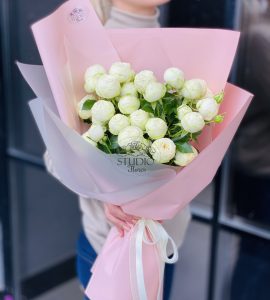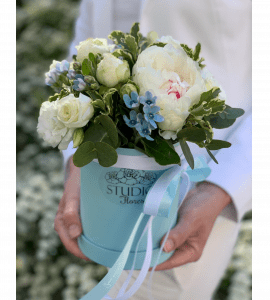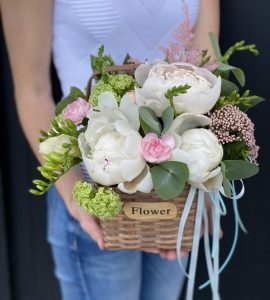Not a single relationship is immune from quarrels, after which an unpleasant aftertaste remains in the soul for a long time. It is difficult to find the right words for an apology, and starting a conciliatory conversation is the hardest part. That is why people present flowers as an excuse: a beautiful bouquet will take the first step towards reconciliation for you.
The first and foremost rule of a conciliatory gift is the realization that a bouquet alone will not correct the situation. It is not enough just to order home delivery of flowers to the person to whom you want to apologize: so that the situation not only clears up, but does not repeat itself, it will need to be discussed and conclusions drawn. If you do not want to appear with the bouquet in person, be prepared for the fact that after the delivery of the bouquet by courier, you will still have to apologize when you meet.
The second rule – the bouquet should not be too chic, so as not to create the impression of a ransom gesture. A conciliatory composition shouldn’t be more luxurious than a birthday or anniversary gift. The best option is a simple but sophisticated bouquet, appropriate for the recipient’s age, consisting of three to seven large buds. It is permissible to dilute the severity of large plants by adding small inflorescences or twigs that set off the main accents.
Rule number three: there should be no polyethylene in the apology bouquet. Absolutely: neither in the packaging nor in the decor. The decor itself should be minimal: it is permissible to add live greenery, palm leaves, eucalyptus or fern branches to the composition. You can pack the bouquet in silence or craft paper, or you can laconically decorate with a satin ribbon. An alternative to packaging is a gift box: in it the flowers will last longer, reminding you of your feelings and sincerity. The same applies to bouquets in wicker baskets: even after the plants wither, the recipient will have a material memory of reconciliation.
There are no specific plants, the interpretation of which in the language of flowers is an excuse. Therefore, floristry recommends ordering as a gift those plants that the recipient will definitely like. You can turn to the classic options – roses, tulips, peonies.
It is permissible to give peonies both to people of age and to young people: it all depends on the shade of flowers and who you want to establish a relationship with. These flowers are a symbol of respect and gratitude. Remember the maturity of the bud: the older the person to whom you are preparing the bouquet, the more open inflorescences you can give him. You can also give peonies to a young girl or young woman if their cups are closed and the petals are closely adjacent to each other.
Tulips, as one of the earliest spring flowers, can symbolize a new beginning, metaphorically representing a renewed trust between two people. The bud maturity rule also works with tulips. If the girl whom you intend to give a bouquet to is superstitious, you should not choose yellow flowers for reconciliation: this sign may be misinterpreted.
Roses in the language of flowers express love, adoration, warm romantic feelings. However, their meaning can change depending on the color: burgundy and scarlet are interpreted as a sign of passion, therefore, as a reconciliation, such flowers are usually given to the second half. The symbolism of pink shades is tenderness, affection, fragility. Roses of delicate shades can be presented in apologetic bouquets to young girls with whom you have a romantic relationship. White color traditionally symbolizes the purity of feelings, stability. You can send a bouquet of white roses as an apology to your mom, grandmother or sister. Yellow is the color of friendship, so this color of apology roses is suitable for quarrels with friends.
In conciliatory bouquets, it is permissible to use pastel colors: cream, coral, pale green, light blue, lilac shades are suitable for apologizing to a person of any age. You can choose both a mono bouquet and a harmonious composition, decorated around a central element or deliberately chaotic.
A bouquet with which you can ask for forgiveness should be modest and restrained, but this does not oblige the composition to be boring. Flowers for excuses can be decorated in volumetric spherical or teardrop-shaped armfuls, asymmetric one-sided compositions, vertical or flowing bouquets.
If the bouquet seems too modest, it can be supplemented with a gift in the form of a soft toy, sweets or fruits. You can add a postcard with a laconic signature or a short confession to an apologetic composition. Such a gesture will help the guilty party set up a loved one in a peaceful way, leaving good memories in his memory instead of a quarrel.


